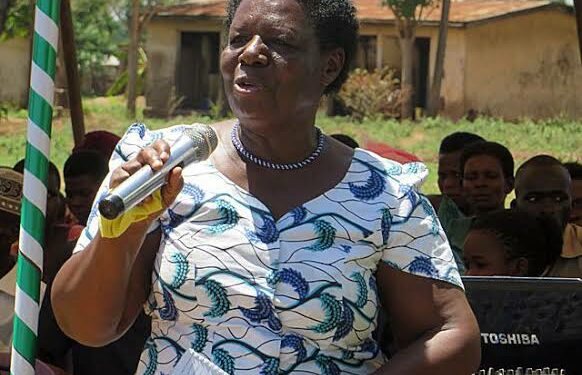SENIOR Presidential Advisor (SPA) in charge of poverty alleviation for Busoga sub region, Mrs. Florence Mutyabule has underscored the need to involve and treat the youth as a valuable resource who can contribute to solving substantive societal problems.
Mrs. Mutyabule contends that the youth who form the majority of Uganda’s population should be included in solving issues of substance by every stakeholder because they are ambitious and energetic.
While poverty persists among the youth, occasioned largely by unemployment, Mrs. Mutyabule has singled out the now popular presidential initiative for skilling the youth as one of the best initiatives.
“…this initiative is in line with the president’s vision to mobilize the wanainchi for socio-economic transformation with focus on job creation, improved household incomes, and better productivity…” she pointed out.
Apart from creating employment, Mrs. Mutyabule says the hubs also reduce criminality among the youth who engage in gainful economic activities and contribute to wealth creation at household and community levels.
As can be recalled, President Yoweri Museveni has since established many zonal industrial hubs in all regions of Uganda aimed at skilling the young people who are provided with opportunities to gain hands-on experience and develop practical skills.
For Busoga with 11 administrative units the training hub is located at Nakabango village in Northern Division Jinja City where hundreds of thousands of youth continue to be skilled in welding, hair dressing, tailoring, block making, stone cutting, farm management and bakery, among others.
However, Mrs. Mutyabule has noted with concern that some people still harbour negative sentiments by wrongfully linking vocational skills to academic failures, saying such a belief no longer holds.
As Uganda’s economy grows with more industries, Mrs Florence Mutyabule says more highly valued-added industries will substitute low valued ones, thus leading to the demand for highly skilled workforce.
She has encouraged leaders at all levels to pick interest in the initiative so as to appreciate its relevance and significance in addressing one of the region’s challenging issues of unemployment.
There has been a widely-held tradition of under looking and degrading vocational graduates as people who have failed in the academic world, but the trend has changed.
Mrs. Florence Mutyabule urges parents in the region to embrace the skilling programme, saying they can not afford to isolate themselves since social change with enhanced technological advancement has made the world a global village.
She contends that in today’s rapidly changing job market where technological advancements have disrupted traditional employment patterns, vocational education is more important than ever because it equips our youth with the necessary skills and knowledge to enter the workforce and contribute to their local economies.
“…gone are the days when parents and guardians would impose courses on their children even when their talents were inclined towards other areas like vocational skills…” Mrs. Florence Mutyabule says.
What You Need To Know:
According to experts, vocational education refers to the training and education provided to individuals to acquire the necessary skills and knowledge for a specific occupation or trade.
It is designed to prepare students for a wide range of careers and professions, with a focus on practical, hands-on training that helps them develop specific technical skills.
Experts also define vocational education as educational training which incorporates knowledge, skills, structural activities, abilities, capabilities and all other structural experiences acquired through formal on- the- job, or off- the -job training, that enhances the recipient’s opportunity of securing jobs in various sectors of the economy or even enabling the person to be self-employed.
According to the National Employment Strategy for Uganda designed by the Ministry of Gender, Labour and Social Development (GLSD), the youth unemployment rate is above the national average.
While the national unemployment rate was 11.7 % in 2021, youth unemployment was even higher at 16.3%.
According to NES, over the same period; the female youth unemployment rate of 20% contributed more to the overall youth unemployment rate compared to the male youth at 13.1% and youth persons with Disabilities.
Overall, the strategy points out that the unemployment rate increased in 2021 compared to all the previous periods, which was highly attributed to distortion in the labour market due to the devastating COVID-19 pandemic.
The 2024 preliminary census figures released by Uganda Bureau of Statistics (UBOS), show that the country continues to have a young population with 23.1million representing 50.5% of the total population being children between one and 17 years.
UBOS also reported that there are more males than females in the young age group between one and 14 years.
The same report shows that youth in Uganda are the youngest population in the world, with 77% of its population being under 25 years of age.
A total of 7,310,386 youths from the ages of 15 to 24 years are living in Uganda, something which should guide and compel the government to design appropriate pro- youth plans and policies.
Do you have a story in your community or an opinion to share with us: Email us at editorial@watchdoguganda.com













